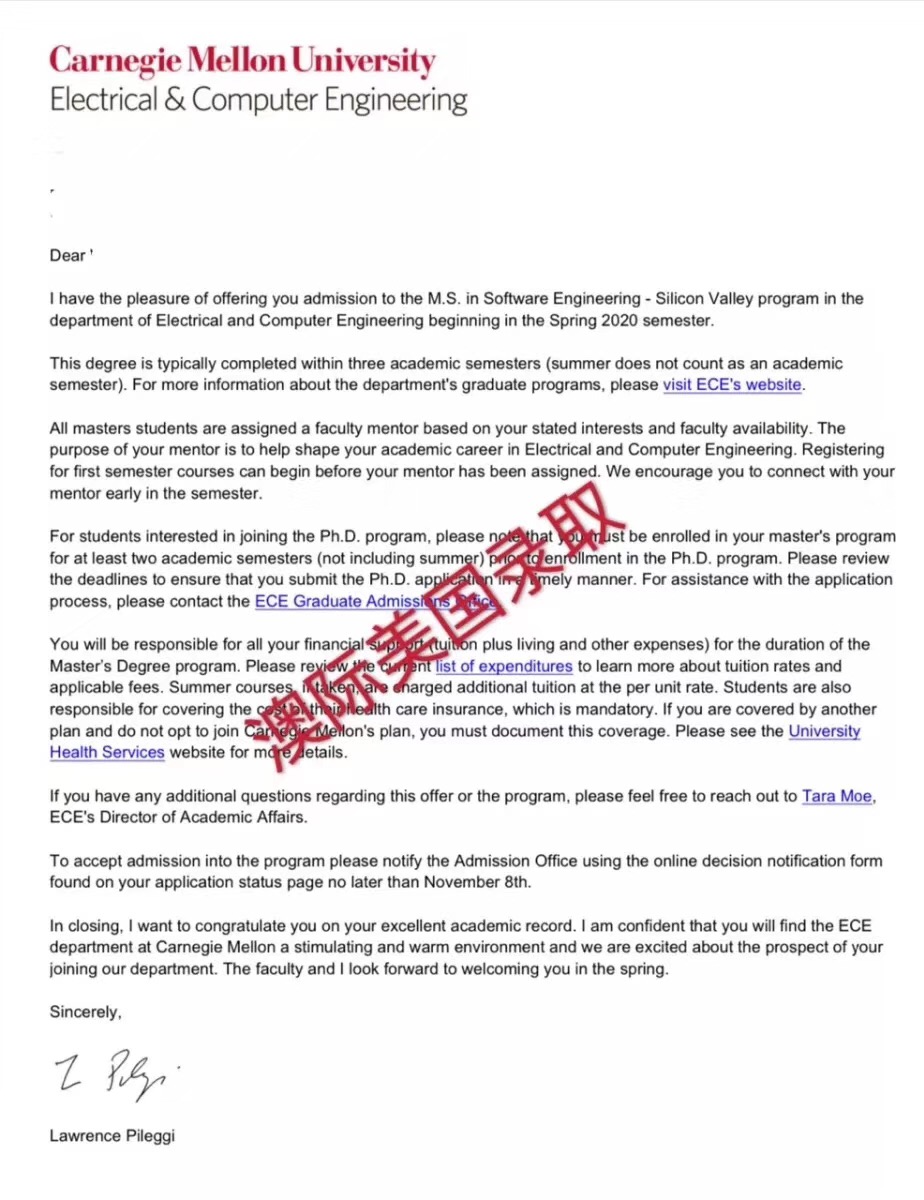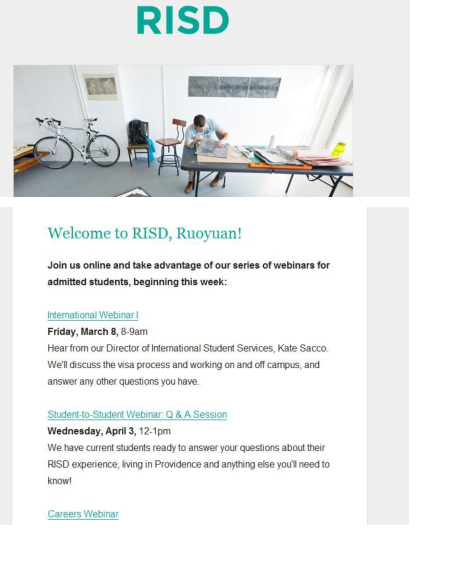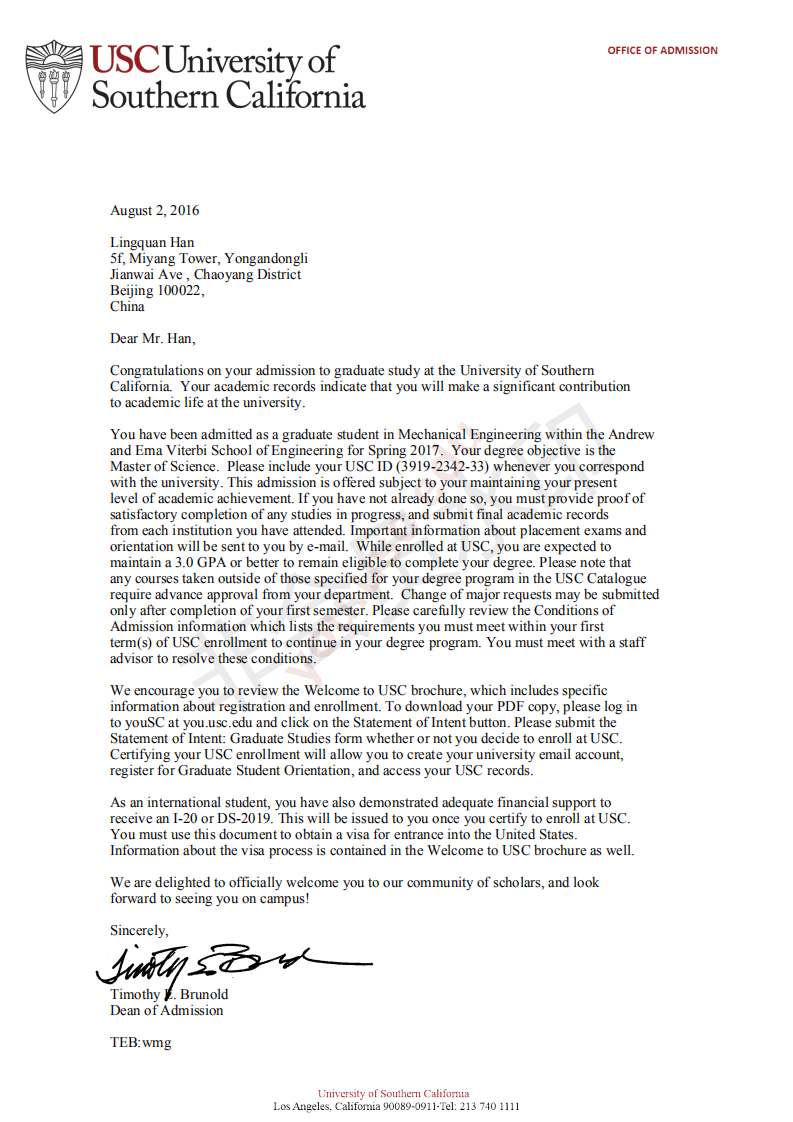美国电子工程专业ps模板.
2017-07-20 609阅读
Two scenes stand out in my mind from my visit to Brazil’s Wetland: Forests burning bore seed planting and trees as hedgerows. Bore the planting season, I could see the leafless remnants of burnt trees still standing. The burning of pristine forests destroys both the habitats and countless species which depend on and thrive in these habitats. The few remaining bare, scarred trees silently convey the cost to our natural resources of pursuing our economic interests. Some forests are preserved by government edict issued in response to international pressure. But most of this preservation occurs alongside major roads — not to protect the ecosystem, but to prevent disturbance to ranches and farms along the highways. The clash between economic and environmental concerns that I witnessed in Brazil fascinates me and attracts me to the Environmental Studies Program.
Two courses in my geography department increased my interest in the connection between the environment and economics: Conservation of Underdeveloped Countries and Environmental Impact Analysis. In the former, we studied the problems of natural resource management in developing countries. The balance is always tilted toward economics growth at the expense of environmental preservation. For example, because the Pantanal Wetland could become a highly productive agricultural system once it’s drained, it is drained regardless of the destruction that drainage causes to the ecosystem. Only portions of the wetland are preserved for tourist purposes.
The other course that piqued my interest is an interdisciplinary course called Environmental Impact Analysis in which we, as a group, created matrix and flow diagrams discussing the economic and environmental impact of logging and preservation of old growth forests. I was able to use tools that I acquired in my economics and environmental studies classes. In general, logging creates economic benits at the local level. It increases employment in the timber industry and subsequently in related non-timber industries; it also benits local government. Yet, it has great deleterious environmental fects: soil erosion, watershed destruction, and a decrease in specie diversity due to loss of habitat. The logging industry represents the classic clash between economic and environmental interests.
I also took two sequential classes in the economics department that are related to Resource Management — Theories of Growth & Development and Policies for Economic Development. Because the courses were taught by a professor who is concerned chily with economic growth, I learned the standard economic rationalizations for development unrestrained by environmental concerns.
In addition to my interest in resource management policies, I have a specific interest in Geographical Information System (GIS), a powerful tool for natural resource management. After taking several related classes in GIS, I began interning for the National Park Service (NPS). After I learn how to use ARC/INFO, a leading GIS package, I will assist the NPS in constructing projects. Some of my duties include spatial and non-spatial data analysis, digitizing themes such as fire locations, vegetation, wildlife habitats, etc., and tabular and graphical presentation of results. I hope to use the tools I acquire during this internship in my continuing study of our environment.
I would like to study the social and economic factors that influence environmental policy formation. For example, because people worry more about pollution than endangered species, laws and regulations concerning environmental pollution are more numerous and stricter than for bio-diversity. Within the School of Environmental Studies, I have a particular interest in the emphasis: Economics, Policy, and Management. This emphasis deals with how economic factors can create negative externalities, such as pollution, and need to be regulated. This emphasis also tries to consider non-economic values, such as aesthetic pleasure and specie diversity. It also discusses tools like GIS and system analysis that apply to environmental management. Because of my interest in GIS, economics, and environmental studies, this emphasis suits me perfectly. Furthermore, the interdisciplinary approach of the School of Environmental Studies attracts me since it combines social science’s strengths with a knowledge of the natural sciences necessary to protect and preserve the environment.
After completing my masters program, I would like to continue my education and obtain a Ph.D. in natural resource management. This degree would enable me to combine a teaching career with advising business and government on natural resource management issues. Teaching college students is more than a one-way channel; I would also learn from their questions like my professors have from mine. In advising business and government, I can help them strike a balance between economic and environmental concerns. GIS will be a usul tool in helping me give them crucial information.
I have enjoyed an interdisciplinary approach in my environmental studies major and become fascinated by the clash between social interests, especially economics, and environmental needs. I pursued an additional major in economics to better understand this conflict. Furthermore, my work for the NPS will train me in the latest techniques in natural resource management. I would like to continue exploring this clash and resource management in the School of Environmental Studies. Ultimately, I would like to teach and work in natural resource management. Ideally, I would like to find ways for allowing development while preventing the burning of beautiful and valuable eco-systems like the Pantanal Wetland.
经典内容回顾:
1.留学推荐信范文汇总,电子专业
2.美国留学电子信息工程PS范文
留学咨询
更多出国留学最新动态,敬请关注澳际教育手机端网站,并可拨打咨询热线:400-601-0022
留学热搜
相关推荐
- 专家推荐
- 成功案例
- 博文推荐

Copyright 2000 - 2020 北京澳际教育咨询有限公司
www.aoji.cn All Rights Reserved | 京ICP证050284号
总部地址:北京市东城区 灯市口大街33号 国中商业大厦2-3层









高国强 向我咨询
行业年龄 13年
成功案例 3471人
留学关乎到一个家庭的期望以及一个学生的未来,作为一名留学规划导师,我一直坚信最基本且最重要的品质是认真负责的态度。基于对学生和家长认真负责的原则,结合丰富的申请经验,更有效地帮助学生清晰未来发展方向,顺利进入理想院校。
陈瑶A 向我咨询
行业年龄 17年
成功案例 5146人
拥有大量高端成功案例。为美国哈佛大学、宾夕法尼亚大学等世界一流名校输送大批优秀人才。
齐亚楠 向我咨询
行业年龄 15年
成功案例 4070人
商科案例有哥伦比亚大学等,工科案例有麻省理工大学等,艺术案例有罗德岛大学等。
李君君 向我咨询
行业年龄 15年
成功案例 4157人
成功案例涉及美国排名前60的院校,专业涵盖商科(金融,会计,管理),工科(生物工程,化学工程,计算机科学,电气工程)等热门领域。